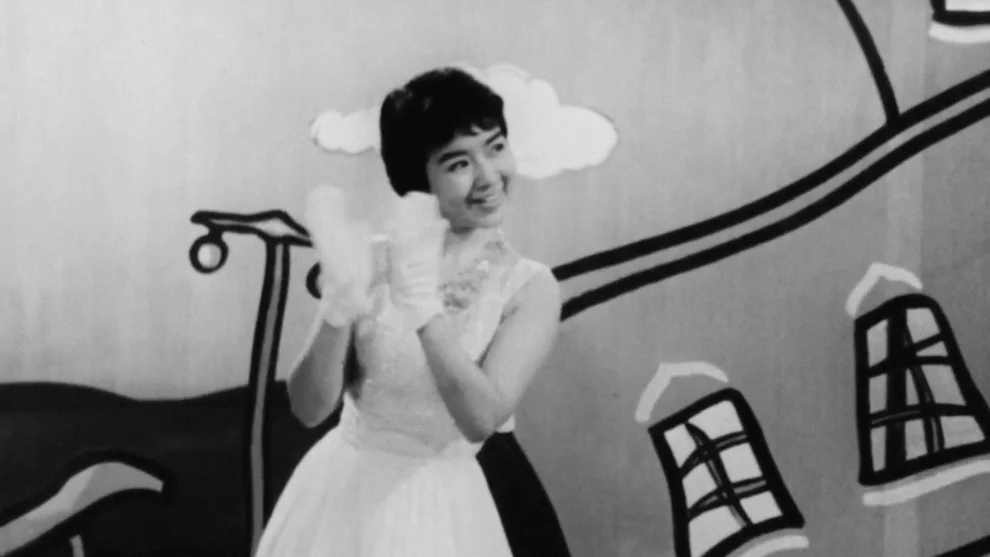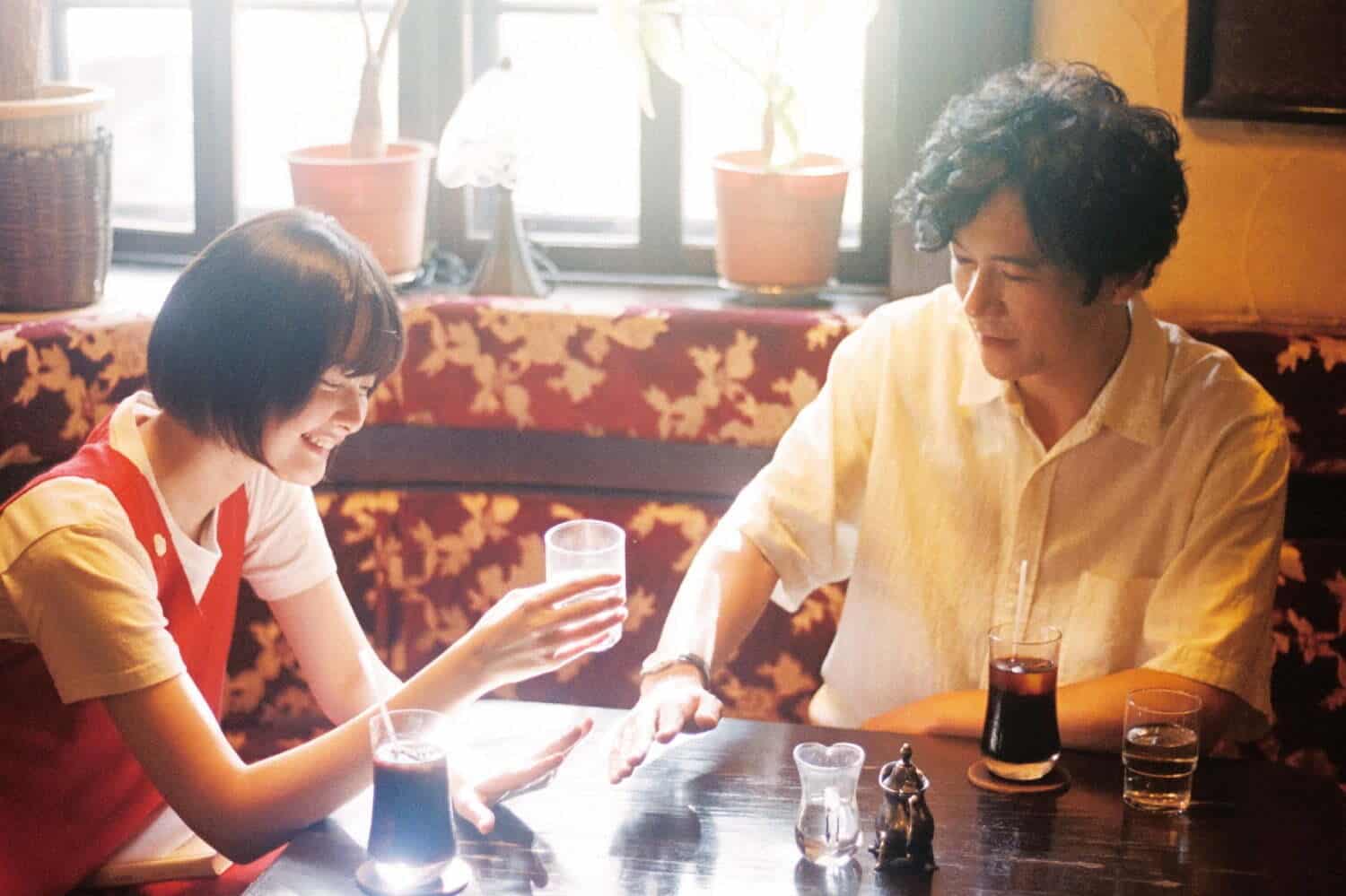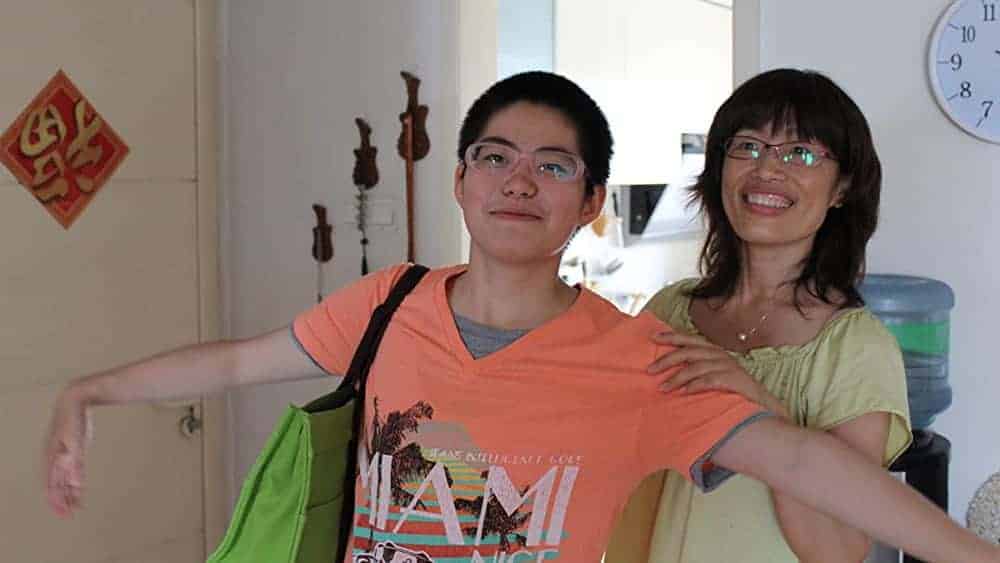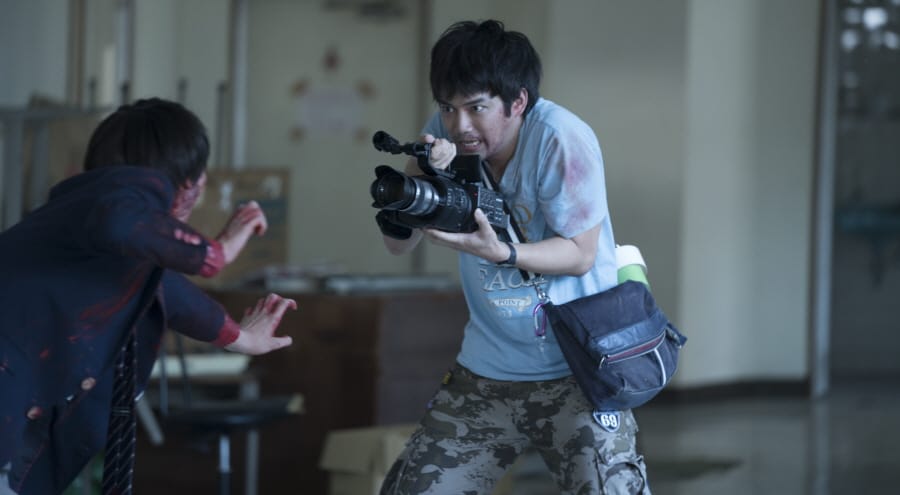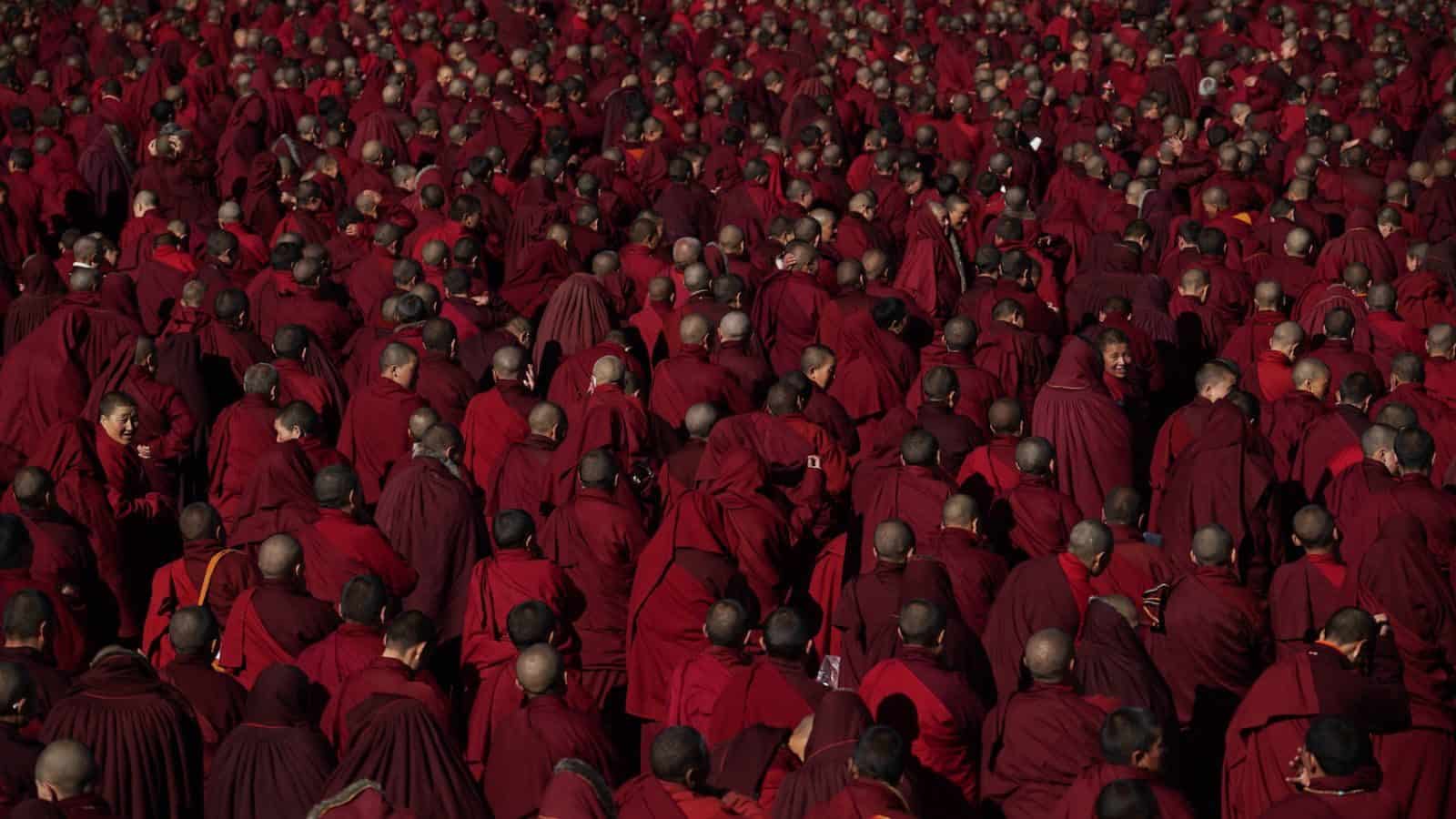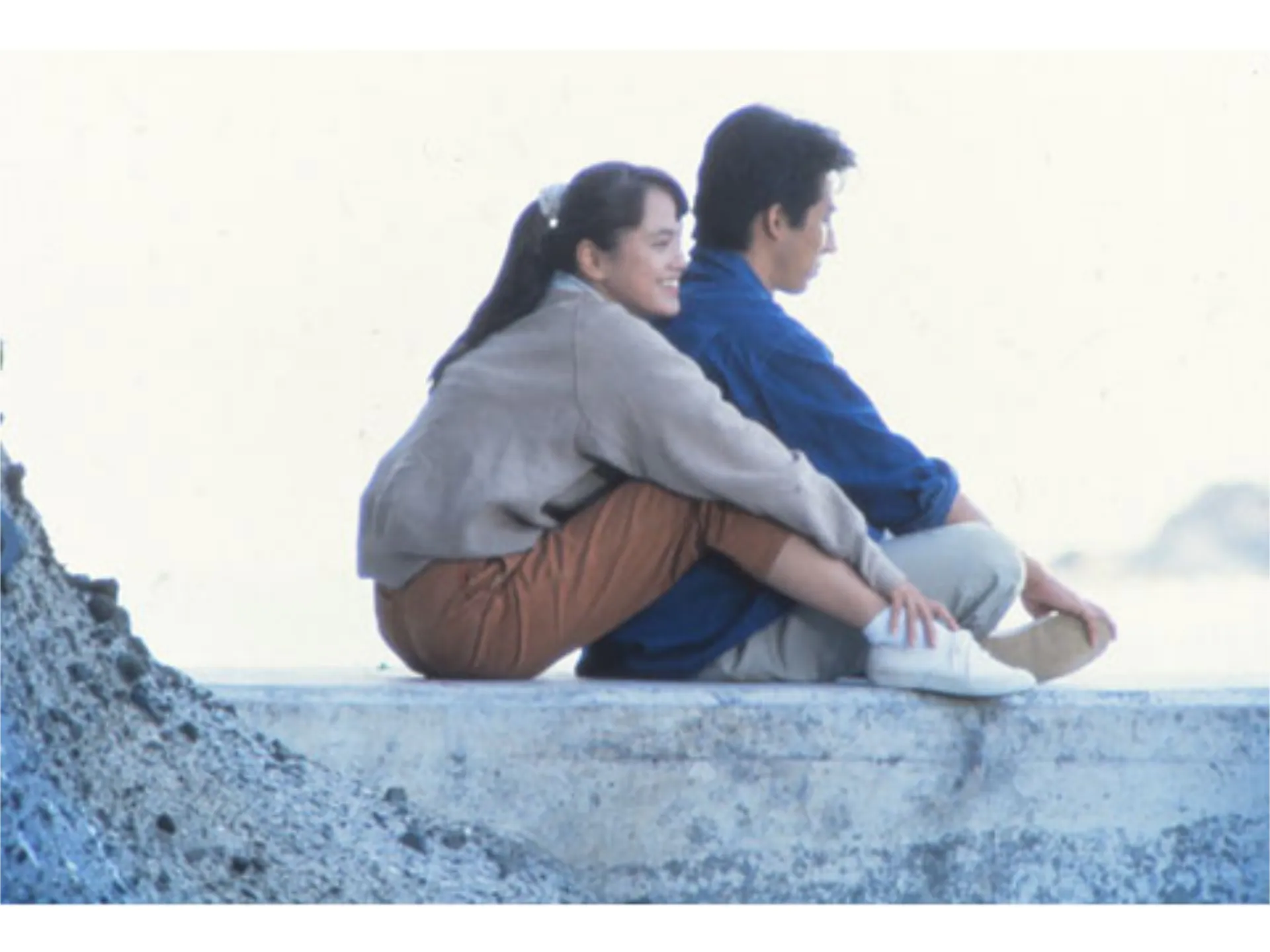In the early 1960s, the Kuomintang (KMT) government's White Terror in Taiwan, which had begun in 1949, was rife. However, one wouldn't be aware of such dire political and social turmoil when watching director Pai Ko's final film, “Romance at Lung Shang Temple” (1962). Completed just before its director's arrest and imprisonment, the rom-com-musical is a sweet and optimistic affair that deftly alludes to the social tensions of the day.
Romance at Lung Shang Temple is screening at International Film Festival Rotterdam

Hsiao-fang (Hsueh-Fang Chuang) works at the temple market, with her pleasant singing attracting customers and boosting ointment sales. However, when a rival salesman muscles her out of the temple, she's forced to consider other work to help her ill father. While on the hunt for a new career, she crosses paths with two young men who are both taken by the young woman: Tang Liang (Yun Ling), a musician, and Lo Chung (Ching Tang), a magazine photographer. The two compete for Hsiao-fang's hand, and both offer her a path to potential stardom.
At its heart, “Romance at Lung Shang Temple” is a rom-com, and a very funny one at that. Much of the humour comes from Tang and Lo's attempts to outdo each other and attain Hsiao-fang's affection. A comically laboured bike race, a series of snarky put-downs, and various acts of foul play all feature as the two lads engage in what can only be called the war of the gladiolus. On the note of comedy, a special mention must go to Li-Hua Su, who plays Tang's lovelorn cousin, Ling Ling. From her persistent nagging to be doted upon to her truly awful singing, Su's suitably annoying performance makes Ling an oddly enjoyable secondary character. While elements of melodrama seep their way into the film's latter stages, the narrative is mostly light-hearted and jovial. Complementing this tone is the romance at the film's core, which develops naturally and leads to a satisfying conclusion.
The film is, of course, also a musical, although it's a far cry from its Hollywood cousins in terms of presentation. Hsueh-Fang Chuang bursting into song often marks a narrative break, her lyrics outlining Hsiao-fang's worries and wishes at that particular moment. While most of these musical intervals serve little purpose other than to entertain and give us a moment to reflect on plot developments, one such break marks a wonderfully creative sequence. In the midst of being courted by two parties, Hsiao-fang slips into a daydream within which she sings about her potential future on a distinctly decorated sound stage. This somewhat jarring scene marks the film's solitary moment of dreamy escapism, as Hsiao-fang slips into a fantasy world away from the struggles of her everyday life.
There are several instances where characters will brand mainland Chinese as sneaky outsiders who aren't to be trusted. Prickly remarks here and there, notably from Tang's father and Hsiao-fang's marketplace rival, hint at the cultural divide in Taiwan at the time of the film's production. Tang's pursuit of the mainlander, Hsiao-fang, is frowned upon, while Tang himself looks down on his romantic rival, Lo, considering him to be dangerous due to his mainland origin. Despite touching on the tense, contemporary social climate, Pai Ko's message is overwhelmingly one of inclusivity and acceptance for all. Both Lo and Tang have their sly moments, while scornful Taiwanese are presented as ignorant and stubborn. I shan't even slightly spoil the unexpected turn of events in the finale, but it reinforces the director's message that everyone is cut from the same cloth.
It's nothing short of tragic that this joyful, often carefree film is forever tethered to the death of its director. After making eight feature films, Pai Ko was arrested, imprisoned for two years, and ultimately executed in 1964 – the fifty-year-old was killed on the charge of being a communist spy. It's a cruel irony that his final project would so openly champion social unity and tolerance in Taiwan while he himself was persecuted. Despite the somber circumstances surrounding the film, “Romance at Lung Shang Temple” is an exuberant, optimistic, and humorous piece of social escapism that leaves one with a warm feeling.


